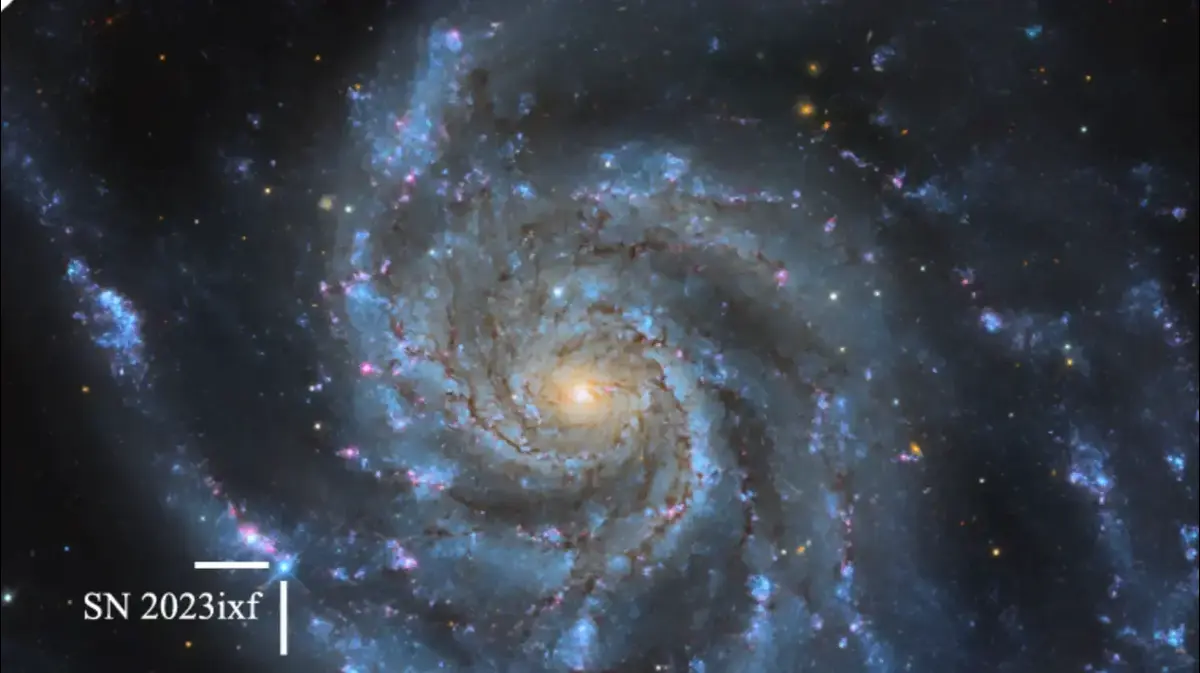Corona has spread all over the world: Reason enough to want to go into space - researchers from the Netherlands have bad news on this.
Munich - What does our future look like?
Will we soon be settling on distant planets?
Will we build houses on Mars and fly around in space in Star Wars style at some point?
Perhaps - the first major obstacle, however, is the way to Mars. If astronauts are actually fast enough to land on Mars at some point, the cosmic rays could have drastic after-effects.
Doctor examines the effects of cosmic rays on the body
“I think people are curious and always will be.
Plans are being made to go to the Moon or Mars.
So we thought we had to investigate the question of whether it was really worth the risk. ”Manon Meerman is a doctor in cardiopulmonary surgery at the University Hospital in Utrecht and has studied the effects of cosmic rays on the human body.
In an interview with
mdr
she explains: "For example, radiation changes molecules in the body that destroy cells elsewhere in the body." Even if the effects of radiation have not yet been fully investigated, one thing is certain: this can have serious consequences.
The modified molecules can attack and damage heart cells, for example, but also other parts of the body.
What is cosmic rays?
The high-energy particle radiation comes from the sun, the Milky Way and other more distant galaxies.
It consists primarily of protons but also of electrons and nuclei of, for example, iron, carbon, nitrogen or oxygen.
Cosmic rays are shielded from the atmosphere on earth.
The further we move from the earth, the stronger it becomes.
When entering the earth's atmosphere, cosmic radiation creates a so-called “particle shower”: Complex processes create secondary particles.
The weakened radiation then reaches the earth.
Source:
spectrum
+
An old NASA graphic shows the assumed form of cosmic rays on Mars.
© dpa / NASA
A slow death: possible long-term effects of cosmic rays - will we ever live on Mars?
The body reacts to it as if it were inflammation and tries to repair what actually does not need to be repaired: deposits can form in blood vessels, for example.
If an astronaut is exposed to strong cosmic rays on his journey to Mars, he could slowly and insidiously die as a result.
We believe the effect won't be seen immediately.
It is not like a heart attack announced by symptoms.
It's coming slowly.
Cells are destroyed and you develop symptoms for years, eventually causing heart failure.
Manon Meerman, Utrecht University Hospital in the mdr
It is already known in medicine that radiation can be harmful.
How exactly cosmic radiation affects the human body, however, has so far been studied primarily in animals and cells grown in the laboratory.
One of the decisive factors is the high particle energy of cosmic rays.
There is no screen or filter against them.
Researchers are therefore more likely to work on alleviating the symptoms by means of drugs or drugs.
One thing is certain: there is still a long way to go before life on Mars.
The effects of cosmic rays are just one of many obstacles to overcome.
Different disciplines have to work together here.














